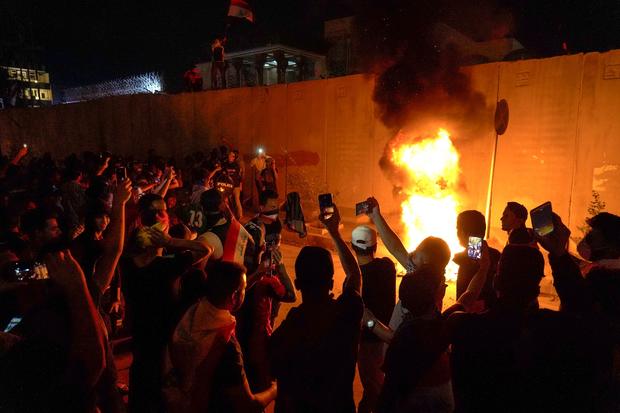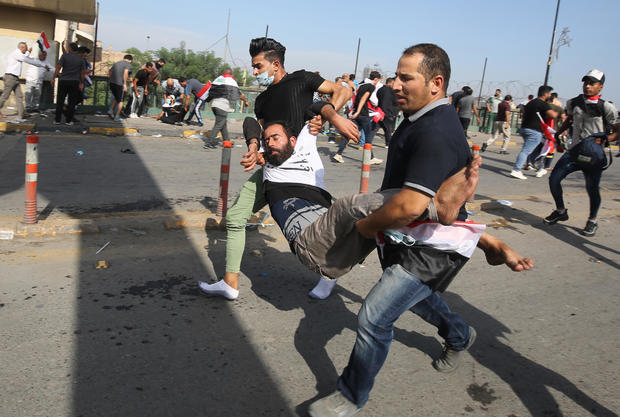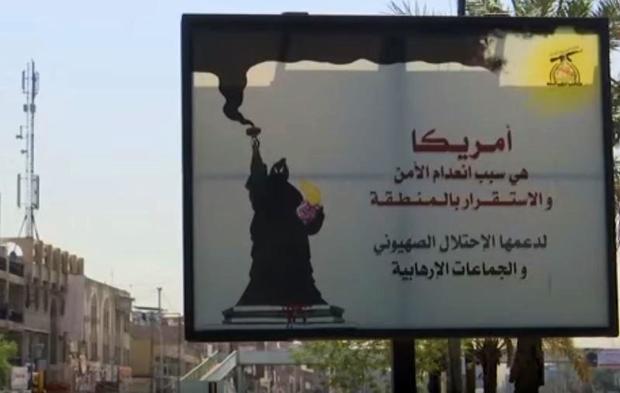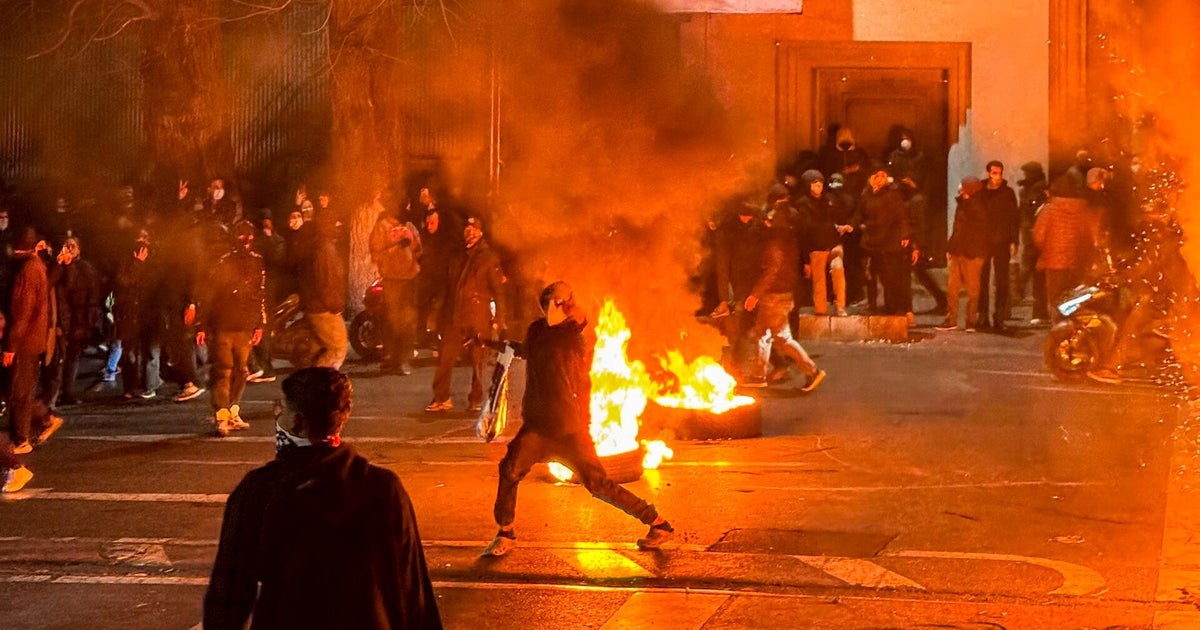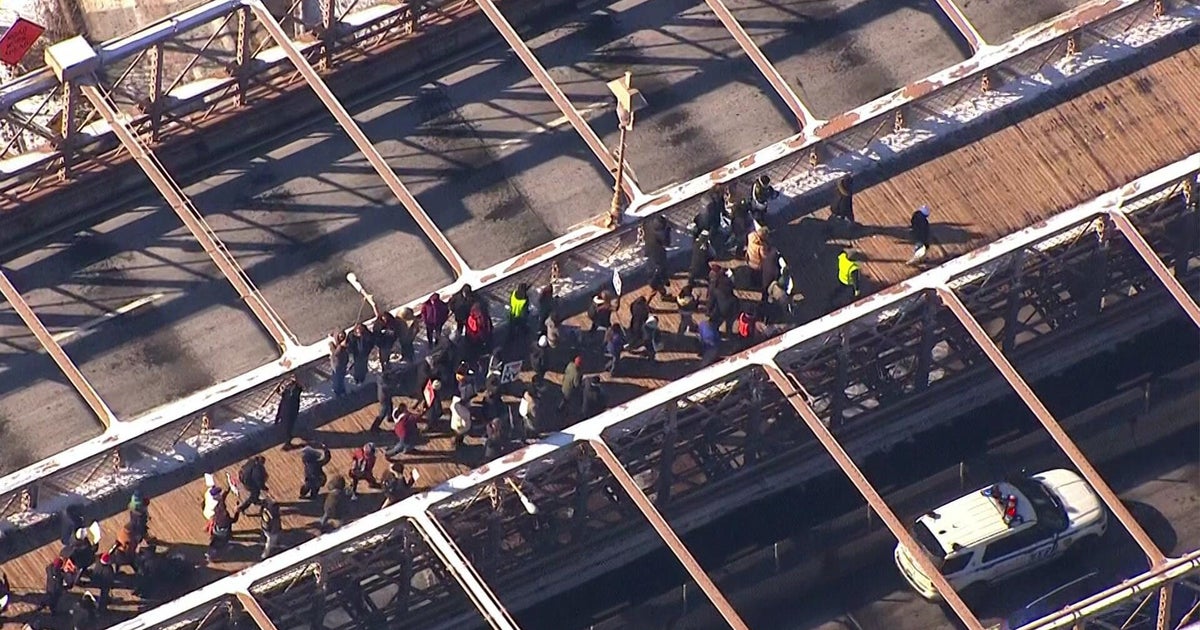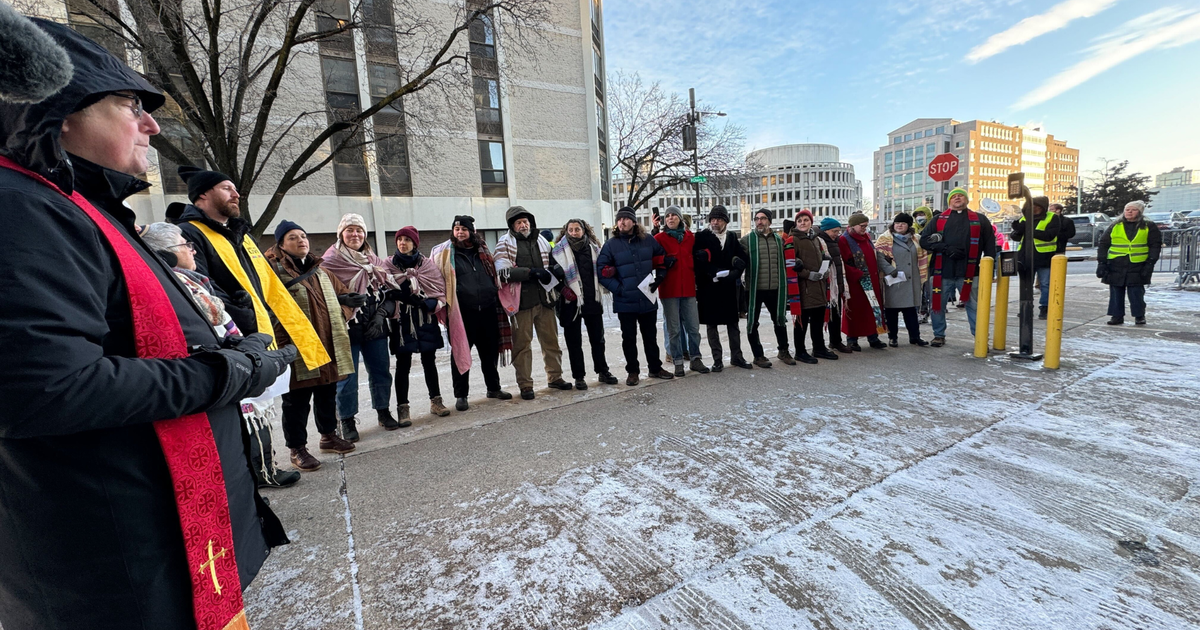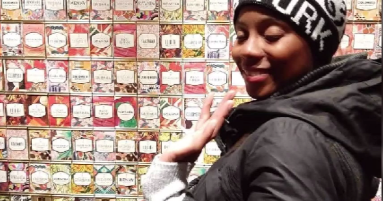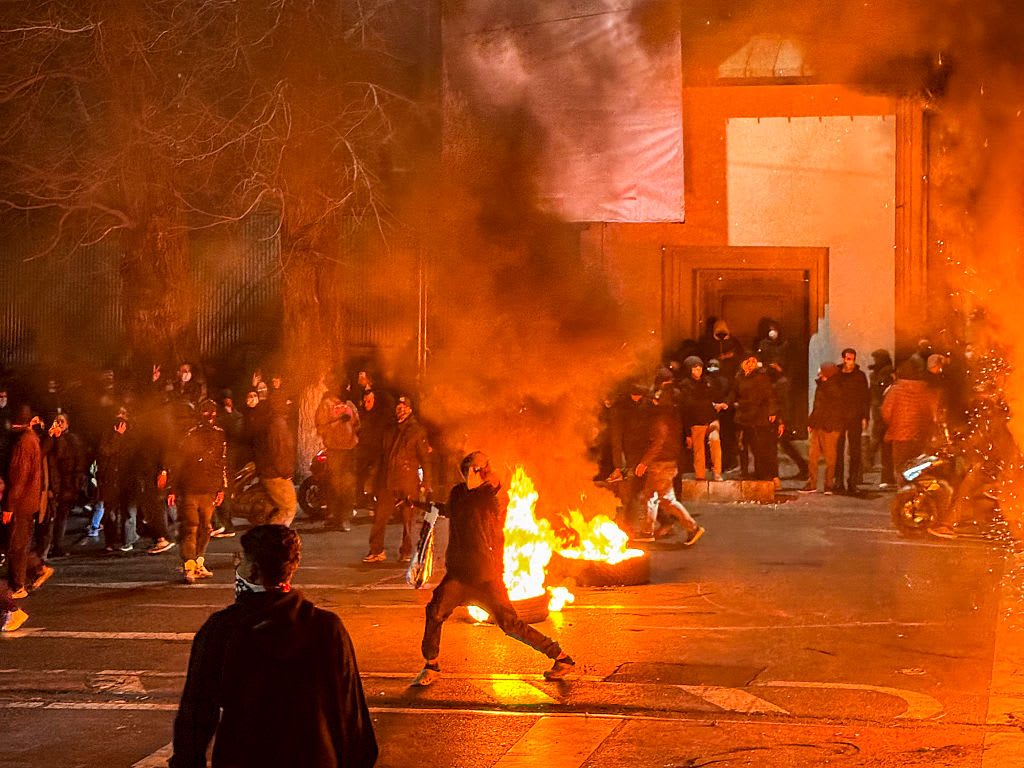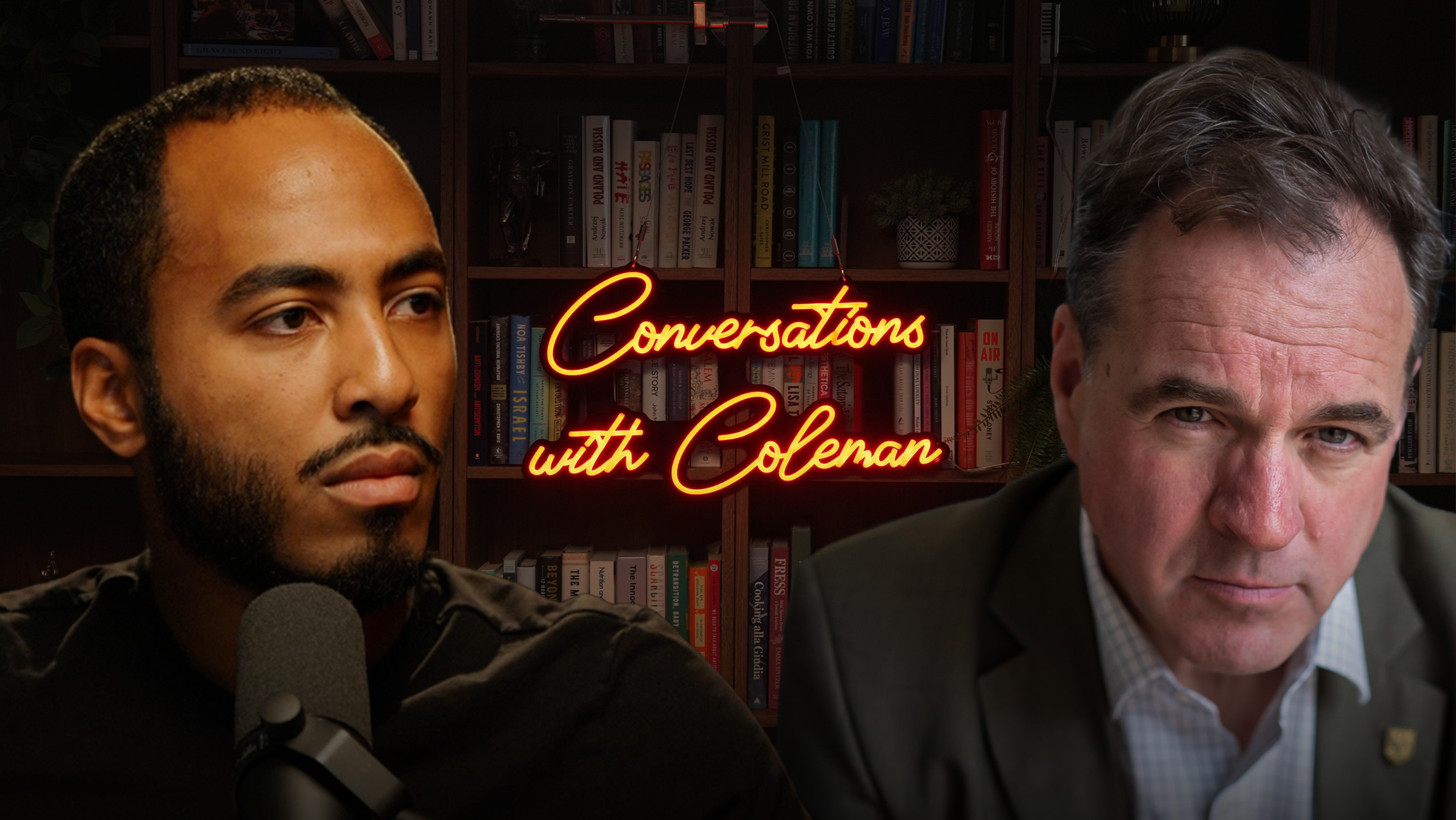Protesters killed as Iraqis focus increasing anger on their leaders, and Iran
Baghdad — Iraqi security forces shot dead three protesters and wounded 19 when they dispersed a violent demonstration outside the Iranian Consulate in the Shiite holy city of Karbala, police officials said Monday. Iraq has seen mass protests in the capital and across the mostly Shiite south in recent days that are fueled by economic grievances and directed at the government and powerful political parties.
The protesters have increasingly directed their anger at Iran, which has close ties to the government, Shiite political factions and paramilitary groups.
On Sunday night, dozens of Iraqi protesters set tires ablaze in Karbala and attacked the Iranian Consulate, scaling the concrete barriers ringing the building as other lobbed firebombs over the walls. They tried to bring down the Iranian flag and replace it with the Iraqi one but could not reach it. They then placed an Iraqi flag on the wall around the consulate.
Dozens of protesters chanted "the people want the fall of the regime," one of the main slogans of the 2011 Arab Spring uprisings.
Iraqi security officials said three protesters were shot and killed while 19 were wounded. Seven policemen were also wounded, they said, speaking on condition of anonymity in line with regulations.
Iraq's Foreign Ministry condemned the attack on the consulate, saying the security of diplomatic missions was a "red line that should not be crossed."
More than 250 people have been killed since the protests first erupted early last month. Security forces in Baghdad have fired tear gas, rubber bullets to keep protesters from breaching barricades on two main bridges heading to the heavily-fortified Green Zone, where the government is headquartered. In southern Iraq, protesters have attacked offices linked to Iran-backed political parties and militias, setting fire to some of them.
Over the last two days, protesters have blocked roads around the main protest site in Baghdad's Tahrir Square to raise pressure on the government.
Political leaders have expressed sympathy for the protesters' demands while condemning acts of violence on all sides and calling on the protesters to stop disrupting daily life.
Qais al-Khazali, the leader of one of Iraq's most powerful Iranian-backed Shiite militias, said in an interview aired on Iraqi TV that the U.S., Israel, some Arab Gulf nations and local officials were working to "incite strife and chaos" in Iraq.
Al-Khazali, who heads Asaib Ahl al-Haq, or League of the Righteous group, singled out the United Arab Emirates. He also vowed to retaliate for the death of one of his group's commanders who was killed recently by protesters in southern Iraq.
"The Americans and the Israelis will pay a price," he said.
The Shiite militias, known as the Popular Mobilization Forces, mobilized in 2014 to battle ISIS militants in Iraq but have since grown into a powerful political faction with close ties to Iran. The militias have blamed Israel for several drone attacks in recent months that targeted their posts in Iraq and neighboring Syria.
Iraq needs to work with both Iran and the United States to maintain security, but with tension between those two Iraqi allies as high as it's been in decades, many Iraqis fear their country could get caught in the middle of a war between Tehran and Washington.
Iraqi President Barham Salih told CBS News' Roxana Saberi in May that he was "very worried" by the prospect.
"Iraq has been living through hell for the last four decades," he said. "Enough of wars, enough of conflict, and certainly, Iraqis do not want to see this country yet again turn into a zone of proxy conflict."
